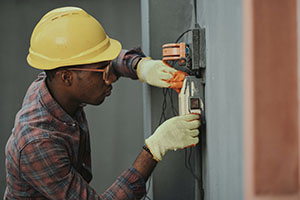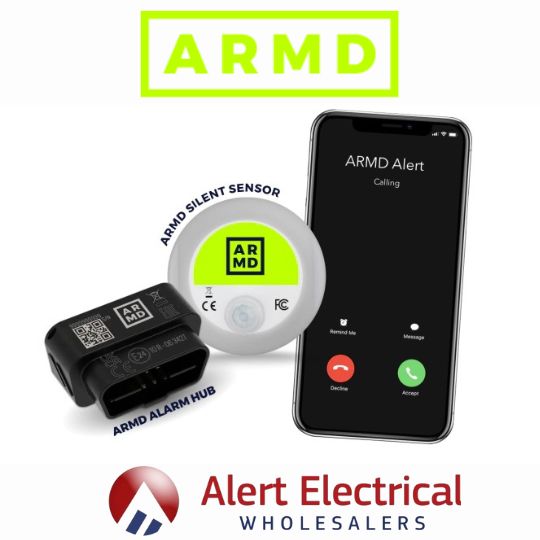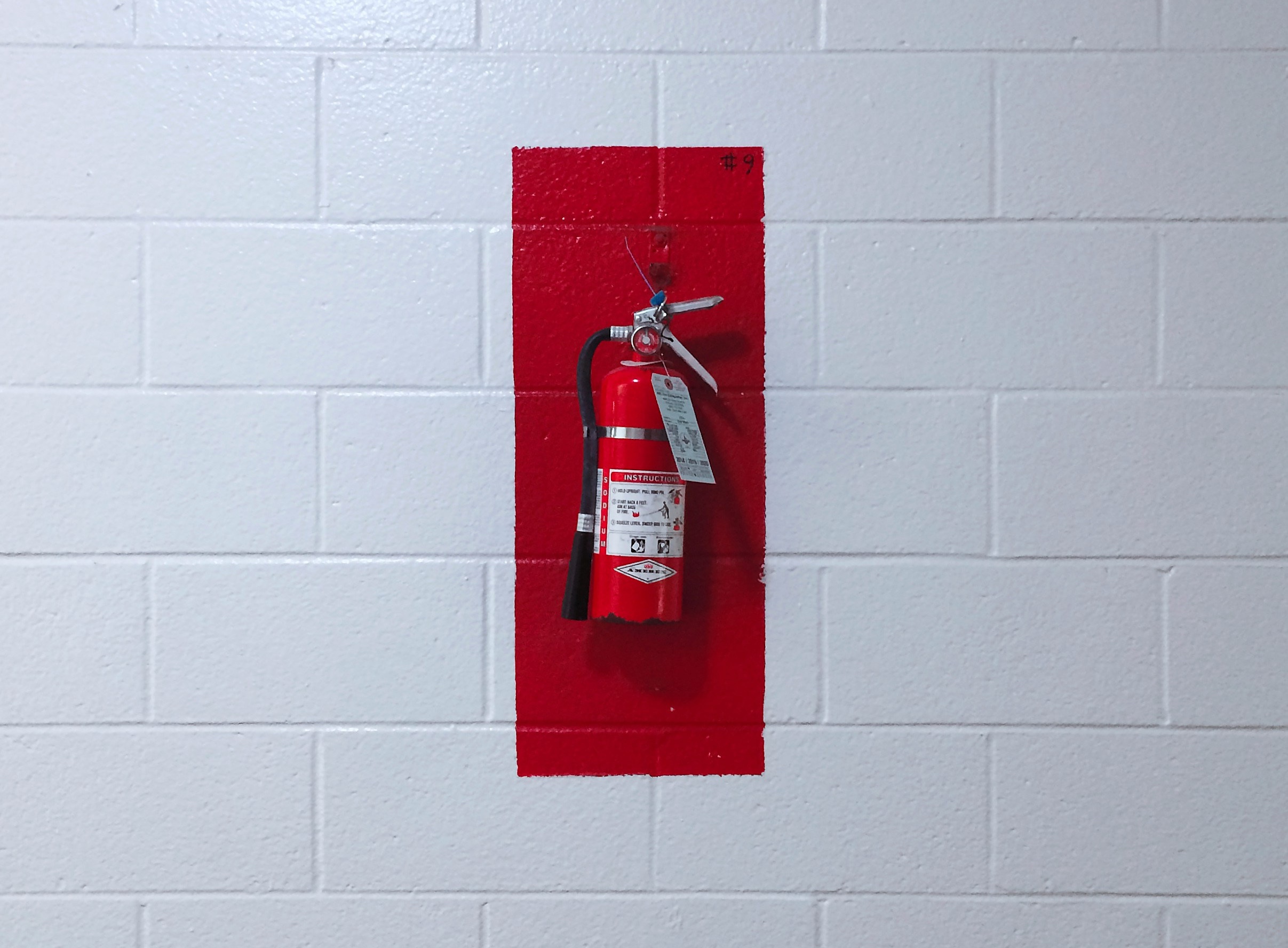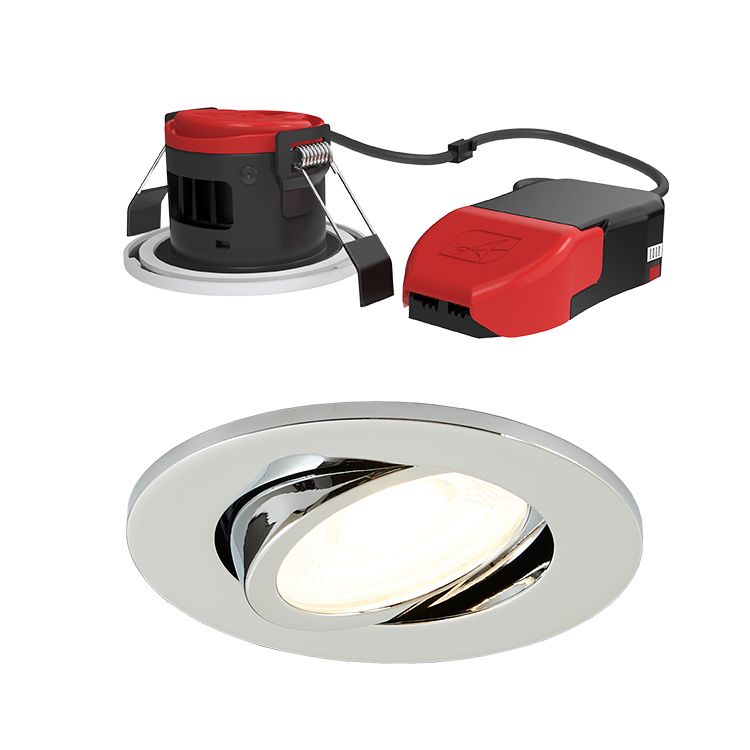Electrician career guide

We deal with electricians on a day-to-day basis, they’re often ordering parts from our trade counters regularly. Some of us are electricians ourselves so we know what the daily routine looks like. We’ve also been in your position, looking at whether or not becoming an electrician is worth it but more importantly how you become one.
So, our team have all offered their experiences and worked with us to create a career guide so that you know what to expect and show you the different career paths that you can take.

Introduction
Becoming an electrician can be quite challenging, you need to understand that you’ll be responsible for people’s safety as well as have a finite understanding of electrical currents, how certain devices use this power and how to make them as safe as possible.
You’ll have heard that ‘getting a trade behind you is a great idea’ and that electricians are ‘never going to be out of work’, and the truth is, they have a point. There’s never any guarantee that you’ll always have work, that’s just not how the world works. However, trades and good electricians are sought after at the moment so the likelihood is that you’ll land on your feet no matter where you are and what the economy looks like.
With that in mind, this guide should give you a glimpse into the life of an electrician and help to show you how you can get started in the field.

Job description
Electricians are skilled individuals who have been trained to work with electrical power. They’re able to diagnose and fix a range of electrical issues, install power and devices in a given location and undertake electrical safety tests to ensure that everything is working as it should be.
An electrician needs to be able to follow technical drawings, and have a well-rounded and in-depth knowledge of electrical regulations and laws so that their work is up to standard and can be signed off.
If you’re interested in becoming an electrician it’ll help if you’re practical and have good hand-eye coordination. Working with hand tools, power tools and even blades you’ll need to be confident in your abilities.
There are a number of different options to choose from when deciding which kind of electrician you’d like to be. You could focus on:
- Domestic works
- Commercial works
- Construction works
- Highway system works
There are a number of other types of work that you can choose from it’s just making sure that you’re choosing the right one and that you’ll enjoy your day-to-day duties.
Salary
Like most industries, the salary range with vary depending on the experience you have, any additional qualifications the type of work that you’re looking to do.
Most agree that the average salary for an electrician falls at around £35,000. This will change with the location that you live in and the type of work that you do as an electrician.
Many electricians go on to specialise in certain areas which can help to increase their salary range. Exploring those options is something to consider while you start to plan your career.

Starting your education
Looking into how to become an electrician is the next step after researching the role and deciding whether or not you’re interested.
The majority of people interested in becoming an electrician will look for an apprenticeship within the field. This is usually one of the go-to options for anyone looking to gain experience and learn on the go.
While you can usually be aby age to start your apprenticeship, most will begin just after secondary school. Going from completing your GCSEs to work can be challenging due to the change in physical activity and increased responsibilities. However, if you’re up to that challenge it’s worthwhile!
Most apprenticeships will require you you have an A* - C in English, maths and science. That translates to between a 4 and 9 with the new number-based scoring system. However, you may still be accepted for our apprenticeship if your employer decides to go ahead with lower grades.
If you do get an apprenticeship, by the end you’ll have gained a level 3 qualification as well as a lot of life experience. Being paid while you learn and work on the go is exciting for most individuals, especially those who feel they learn better with a hands-on approach. This also applies to apprenticeships within the armed forces too.

Types of companies you can work for
Choosing the right company to work for is an individual decision, some prefer larger companies that offer a little more stability while others like the idea of starting their own business and building something from the ground up.
Many aspiring electricians will work for a smaller self-employed business owner who liaises directly with clients or subcontracts for a larger company in need of their services. However, there are many larger companies across the UK that have established and long-standing contracts working on building sites and commercial premises.
It’s wise to not limit yourself but as time goes on think about a key focus within the industry. For example, would you prefer to work on commercial or domestic property? Is there a specific type of work that you enjoy, like installing EV chargers? Once you have a good idea of what kind of work you’d like to pivot into you can start to plan your career around that.
If you’re interested in getting started on your own, and building your own company you should do as much research as possible and plan ahead. Having a business plan and developing the right reputation is important in this case.

Gaining Experience
Getting as much experience under your belt is a great way to progress and learn. Apprenticeship will offer a good level of experience but before that, it might be worth looking for companies that offer internships or work experience so that you can get a better, real-work understanding of what it is an electrician does.
If you have a family member or friend who is willing, ask them if they’d consider letting you shadow them for a number of days. This can act as an informal way to see what the life of an electrician is like. However, they would need to get the right paperwork and insurance to make this possible.

Day in the life
The day-to-day work, whether you’re qualified or not will vary depending on the type of work that you do. Commercial electricians will have a vastly different working day compared to that of a domestic electrician.
On average, a normal day for an electrician will start early in the morning around 7 am. You may need to arrive at the office or electrical wholesaler to collect materials and supplies and then after that travel to the site (wherever it is that you’re working).
You may need to liaise with a foreman or client to better understand the job, ensure paperwork is signed or gain access to all of the necessary areas of the site you’re working on.
Once that’s done you’ll need to put the necessary personal protective equipment (PPE) for your tasks and you can begin.
You may be tasked with installing new cabling, equipment or devices. You may be required to diagnose a problem and either fix it there and then if possible or plan the repair for a later date. It’s likely that there will be a number of tasks to complete and this could span over a number of different job sites/locations.

Creating your CV
If you’ve decided that you’d like to pursue a career as an electrician you need to have a strong CV.
If you’re just out of school it’s good to show how interested you are in the career path and company you’re applying to. Similarly, having some experience, whether it’s helping with small electrical jobs around the house or gaining some work experience where possible.
In any case, make sure your CV is up to date with your latest employment history and education where possible. Include strong references if you can so that your potential employer is able to get in touch and ask questions about you and your previous roles if possible.
Remember that most hiring managers or business owners are looking through a long list of people who are applying for the same role as you. With that in mind try to make your embody your CV with the right personality and format it in a way that will get their attention. Try to keep your CV on a single page but don’t worry too much if it ends up on 2 pages, just make sure that it doesn’t go further than that.

Interview tips
Once you’ve applied to a few companies you’re going to get an interview! But if you’re sat there thinking ‘now what?!’ here are a few tips for you.
The best piece of advice is to stay calm and relax a little. While you don’t want to seem uninterested, being calm and confident goes a long way. An interview is just a chance for you and the company to get to know each other a little better. While it might feel like the company has all the power here, you have just as much right to decide whether or not the company is worth it for you too.
Before you get to the interview make sure you ask yourself the following questions:
- What makes me different from the other candidates?
- Why should this company care about that?
- Does this company fit my criteria?
- What kind of electrician do I want to be and what kind of work would I prefer to do?
- Are there any issues that I should address?
Once you have the job
Congratulations, you got the job!
Now, once you have the job you need to make sure that you take a few steps to keep moving in the right direction. Work hard and learn as much as you can while you’re working. This is not only going to impress your employer but the customers too. It’ll show an eagerness to progress and get better at your role as time goes on.
In your personal time have a look at a few courses or qualifications that you’d like to take on. In doing this you’ll get a better understanding of the industry but you’ll also start to gain new experiences and having more qualifications under your belt can help to increase your salary!
Most importantly, finish your assigned work efficiently and to a high standard. Once you’ve done that ask for more if you can. Asking for more work will show that you’re happy to help where possible and you’ve invested in the work that you do.









